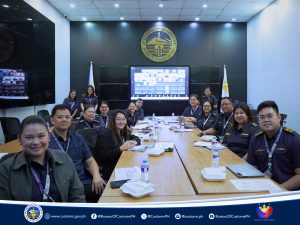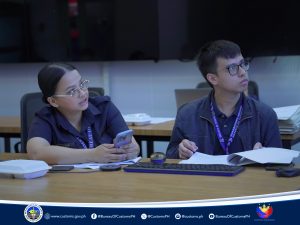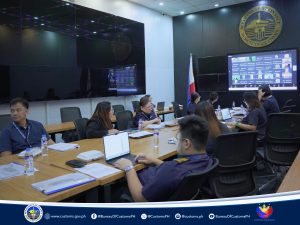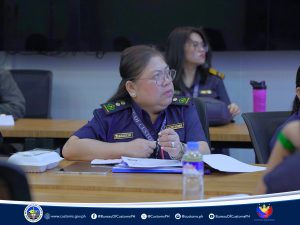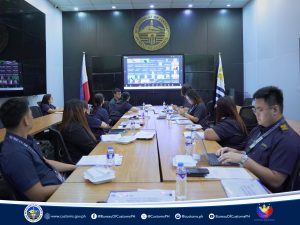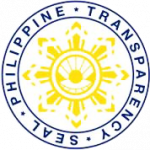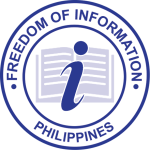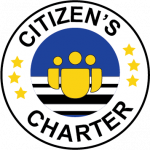- GOVPH
- About BOC
- Issuances
- Aduana Library
- Memoranda
- Memoranda for Reference Values
- Customs Administrative Order (CAO)
- Customs Administrative Order (CAO) 2025
- CUSTOMS ADMINISTRATIVE ORDER (CAO) 2024
- Customs Administrative Order (CAO) 2023
- Customs Administrative Order (CAO) 2022
- Customs Administrative Order (CAO) 2021
- Customs Administrative Order (CAO) 2020
- Customs Administrative Order (CAO) 2019
- Customs Administrative Order (CAO) 2018 and Older
- Customs Memorandum Order (CMO)
- Customs Memorandum Circular (CMC)
- Customs Memorandum Circular (CMC) 2025
- Customs Memorandum Circular (CMC) 2024
- Customs Memorandum Circular (CMC) 2023
- Customs Memorandum Circular (CMC) 2022
- Customs Memorandum Circular (CMC) 2021
- Customs Memorandum Circular (CMC) 2020
- Customs Memorandum Circular (CMC) 2019
- Customs Memorandum Circular (CMC) 2018 and Older
- Customs Special Order (CSO)
- Custom Training Circular (CTC)
- Joint Memorandum Orders (JMO)
- Trade
- News Room
- Port Updates
- HR Corner
- Quicklinks
- Infographics
- Bureau of Customs Webinar
- Auction and Sales
- Bid Opportunities
- Invitation to Bid / Request for Quotation / Invitation for Negotiated Procurement / Notice to Conduct Direct Contracting – 2023
- Invitation to Bid / Request for Quotation / Invitation for Negotiated Procurement / Notice to Conduct Direct Contracting – 2022
- Invitation to Bid / Request for Quotation / Invitation for Negotiated Procurement / Notice to Conduct Direct Contracting – 2021
- Invitation to Bid / Request for Quotation / Invitation for Negotiated Procurement / Notice to Conduct Direct Contracting – 2020
- Invitation to Bid / Request for Quotation / Invitation for Negotiated Procurement / Notice to Conduct Direct Contracting – 2019
- Invitation to Bid / Request for Quotation / Invitation for Negotiated Procurement / Notice to Conduct Direct Contracting
- Bid Documents
- Bid Supplement
- Summary of Awarded Contracts
- Summary of Contracts Awarded 2023
- Summary of Contracts Awarded 2022
- Summary of Contracts Awarded 2021
- Summary of Contracts Awarded 2020
- Summary of Contracts Awarded 2019
- Summary of Contracts Awarded 2018
- Summary of Contracts Awarded 2017
- Summary of Contracts Awarded 2016
- Summary of Contracts Awarded 2015
- Summary of Contracts Awarded 2014
- Summary of Contracts Awarded 2013
- Annual Procurement Plan
- Customs Knowledge Resources
- References
- Gender Equality and Diversity
- Philippine National Trade Repository
- Philippine Tariff Finder
- Authorized Economic Operator
BOC Strengthens Anti-Corruption Efforts with Integrity Action Plan
The Bureau of Customs (BOC), under the leadership of Commissioner Bienvenido Y. Rubio, has updated and begun cascading the Integrity Action Plan (IAP) across all offices and collection districts. This strategic framework is designed to combat corruption, uphold ethical standards, and drive institutional reforms while ensuring compliance with international best practices.
Supported by the World Customs Organization (WCO) Accelerate Trade Facilitation Programme, the continuous monitoring and updating of the IAP reinforces the BOC’s commitment to integrity and good governance. Serving as a roadmap for integrity initiatives, the IAP aligns with key principles of the WCO’s Revised Arusha Declaration. It includes specific deliverables and an action plan updated by the BOC’s Integrity Working Group (IWG), based on the previous diagnostic assessment and action planning and the results of the Internal Analysis of Corruption Risks and Corruption Risk Mapping.
The IAP aims to reinforce compliance with anti-corruption laws, enhance transparency, modernize customs operations, and strengthen audit and investigation mechanisms. It establishes a regulatory framework to ensure consistent enforcement and policy implementation, introducing stricter compliance measures to prevent illicit trade and customs fraud. These measures will also strengthen the BOC’s legal foundations for accountability and governance.
In promoting transparency, the IAP prioritizes open access to customs procedures, the publication of regulatory updates, and proactive information disclosure to stakeholders. The BOC is intensifying its efforts to reduce discretion in customs transactions, ensuring clear and consistent decision-making processes.
With a focus on digitalization and automation, the BOC aims to minimize human intervention in transactions, thereby reducing opportunities for fraud. The introduction of electronic payment systems, paperless processing, and data analytics will not only enhance efficiency but also prevent the manipulation of customs records.
The IAP aligns with global customs standards to improve operational efficiency. The BOC is streamlining import-export processes, enhancing risk management techniques, and integrating technology-driven solutions to support trade facilitation and revenue collection.
Strengthening audit and investigation procedures is a central component of the IAP, ensuring that cases of corruption and misconduct are swiftly identified and addressed. Enhanced audit capabilities, risk-based compliance assessments, and stricter penalties for violations reinforce the BOC’s zero-tolerance policy for corruption.
To further improve resource management and organizational morale, the BOC is enhancing employee incentives, strengthening recruitment standards, and investing in leadership development programs. Ethical training and performance-based evaluations are being implemented to foster integrity and professionalism across all ranks.
The IAP also strengthens the BOC’s collaboration with the private sector, including trade associations, logistics companies, and industry stakeholders, to improve regulatory compliance. Regular consultations and feedback mechanisms ensure that reforms address industry needs while maintaining strict anti-corruption safeguards.
A key feature of the IAP is the Code of Improvement of Internal Control Measures, which fortifies risk management policies, strengthens compliance monitoring, and reinforces accountability mechanisms. The BOC is enhancing internal audit protocols, implementing stricter control procedures, and leveraging technology to detect irregularities in customs transactions.
“The Bureau of Customs recognizes that integrity is the foundation of efficient and trustworthy customs administration. Through the Integrity Action Plan, we are fostering a culture of accountability and transparency that will not only strengthen our internal processes but also enhance public trust in our institution,” said Commissioner Rubio.
The ongoing cascading of the IAP across various ports and offices ensures that all personnel are well-equipped to uphold ethical standards. The BOC continues to work closely with national and international partners to reinforce anti-corruption measures and institutional reforms.
This initiative is part of the BOC’s broader agenda to modernize customs procedures, enhance revenue collection, and facilitate trade while maintaining strict enforcement against illicit activities.
###
ABOUT GOVPH
All content is in the public domain unless otherwise stated.

